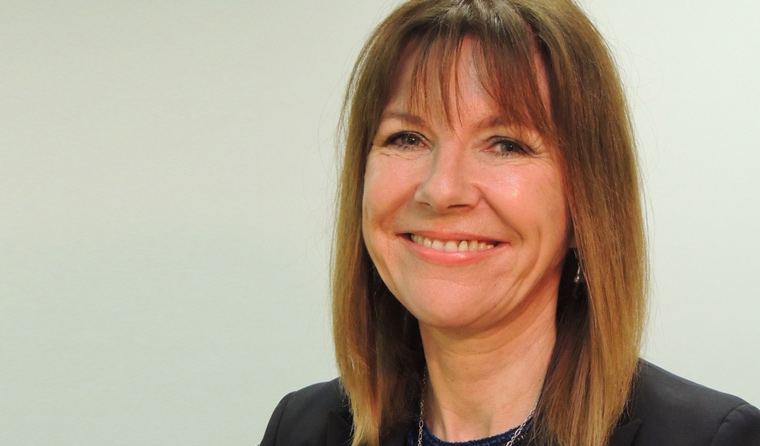News
Concerns over online contraceptive pill subscription service
Experts warn that while online services may remove barriers to access, the convenience could come at the cost of important health checks.
 The new service offers 35 different contraceptive pills, with doctors assessing the most appropriate one based on information provided by the patient.
The new service offers 35 different contraceptive pills, with doctors assessing the most appropriate one based on information provided by the patient.
Kin Fertility was launched in February.
Women sign up online and complete a five-minute health questionnaire. Their answers are reviewed by a qualified GP followed by a text-based consult. A prescription is issued and sent to a partner pharmacy, and the pill arrives at their door.
The website claims to give women control of their health ‘without compromising on quality healthcare’.
But experts have warned that goal is unlikely, fearing the convenience may well come at a cost of important health checks.
‘A contraceptive consult is more than just about a few risk factors, and “here’s your next lot of pills”,’ Dr Amy Moten, GP and Chair of the RACGP Specific Interests Sexual Health network, told newsGP.
‘It’s about, “Is this the best tool for you?”, “Do you need a sexual health check?”, “Do you need any other health checks?”’
Dr Deborah Bateson, a Clinical Associate Professor of Gynaecology and Neonatology at the University of Sydney and Medical Director at Family Planning NSW, agrees.
While she supports initiatives that remove unnecessary barriers for women accessing contraception care, she says a text-based service, can be a missed opportunity for important health checks.
‘A subscription service, if it’s provided with stringent processes in place to screen for conditions and health issues, potentially can be a good tool for access, particularly for women in rural or regional areas for instance,’ she told newsGP.
‘But [you] can’t replace that face-to-face contact.
‘We would always encourage people to speak to their trusted GP about their contraceptive needs. We also know that going to see a GP means that you’ve got that opportunity to address a full suite of reproductive and sexual health care, like STI [sexually transmitted infection] screening [and] cervical cancer screening.’
Women who wish to access the online service but have never used the pill before are required to have seen their GP in-person first. Those currently on the pill or who have taken it in the past two years can access it directly.

The fact the service a pill based on information provided by the patient raises concerns because as patients may unknowingly provide inaccurate information, according to Dr Amy Moten.
However, Dr Moten says there can be risk factors for patients who have not had a recent health check.
‘Before starting the oral contraceptive pill, you should have a recent blood pressure reading and then another reading probably at a minimum of once a year afterwards,’ she said.
‘That’s because the pill can increase blood pressure, but also the combination of the pill and increased blood pressure is a risk factor for blood clots and strokes.’
The service offers 35 different contraceptive pills, with doctors assessing the most appropriate one based on information provided by the patient.
But Dr Moten says this raises concerns, as patients may unknowingly provide inaccurate information.
‘Not all pills are equally safe,’ she said. ‘Some have slightly higher risk of blood clots and there might be a specific reason why someone was started on that pill at some point, but that it might be appropriate to come onto a different pill.
‘So even if they’re continuing with the pill, the advice would be that maybe they need a lower-dose pill or a pill with a different progestogen. And that’s not something that you’re going to get necessarily with an online or text consult.
‘It is also a lot harder to pick up on non-verbal cues over text and if somebody isn’t 100% happy with their pill that might not come through.’
Two-thirds of Australian women of reproductive age use oral contraception, making it the most popular method of birth control. Dr Bateson attributes this in part to women not being aware of new contraceptive developments, such as longer-term reversible options, that may be better suited to their needs.
‘We’ve got the new Kyleena … that people are just not necessarily going to be aware of if they’re using these sorts of apps and websites because they would tend to stick with what they know about,’ she said.
This is where Dr Moten says having a regular GP who has a rapport with the patient, knows their medical history and social circumstances can be helpful.
Contraception and the conversation around fertility
The online service also has plans to expand its offering to include a ‘comprehensive fertility hormone test’ to give women a picture of their fertility.
While both Dr Bateson and Dr Moten agree that fertility is an important part of the contraceptive care conversation, they share concerns over the inclusion of anti-mullerian hormone (AMH) testing for ovarian reserve, as it can cause ‘unnecessary anxiety’ or be ‘falsely reassuring’.
‘Your fertility now if you’re not planning to conceive in the five years is actually irrelevant, and that’s the only thing those tests can really test for,’ Dr Moten said.
‘You might have a certain number of eggs left, but it tells you nothing about the quality of those eggs. So if you decide to delay your fertility based on that, you may end up getting in trouble further down the track.
‘But I think that it’s always important to have a discussion about future fertility when people are on contraception because, although contraception doesn’t reduce your long term fertility, people often do tend to stay on it to a point where their natural fertility starts to decline and then they may have problems.
‘So, again, they really need to think about where they want to be in a year – in five and 10 years almost.’
Greater access
Kin Fertility was started by Nicole Liu after she was diagnosed with polycystic ovarian syndrome.
This brought up questions about the 25-year-old’s fertility, and left her confused and looking for answers – an experience that led her to create a service to, in part, help inform and educate women about their reproductive health.

Dr Deborah Bateson attributes the popularity of oral contraception in part to women not being aware of new contraceptive developments, such as longer-term reversible options.
Dr Bateson says it is important for health providers to take note of such experiences to be a part of the response.
‘I’ve noticed it in the last few years; there’s a real interest … around contraception, fertility [and] women’s health issues in general. But there’s often mixed messaging,’ she said. ‘So there is a need, and women are voting with their feet and going to places that they feel that they can trust.
‘Ideally this [information shouldn’t be] put out by companies, but actually put out by trusted organisations, [so that] they know that when they go to a family planning website or the RACGP that there’s information not just tailored for health professionals, but also tailored for the community.
‘That’s something that we all need to strive for, to ensure that we are meeting people’s needs and that they’re not having to turn to commercial companies.’
The convenience factor is the key message in much of the marketing for Kin Fertility, and women pay for that convenience via an annual fee. But with the expansion of telehealth during the ongoing pandemic, the benefit of technology as a tool has been widespread.
While many are hoping telehealth is here to stay beyond COVID, Dr Bateson says recent changes to the legislation have created significant barriers for sexual health services.
‘I can see why they did this, to prevent rogue operations – and that continuity of care is really important for GPs,’ she said.
‘But there are services – like specialised GPs, for instance – who provide medical abortions, which by definition is a one-off service.
‘Access has been blocked for some people who would really benefit from it … and we have had to turn some people away.’
newsGP contacted Kin Fertility for comment.
Log in below to join the conversation.
contraceptive pill fertility telehealth
newsGP weekly poll
Health practitioners found guilty of sexual misconduct will soon have the finding permanently recorded on their public register record. Do you support this change?